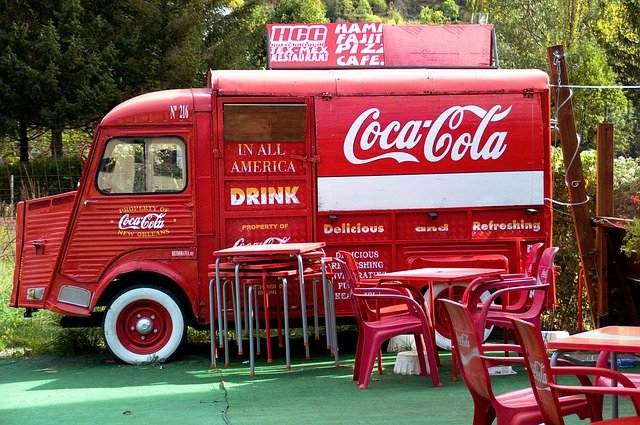Globalization vs. Localization
Table of Contents
Globalization vs. Localization: A Deep Dive into Balancing Global Strategies with Local Needs
In an increasingly interconnected world, businesses must navigate the intricate dance between globalization and localization to achieve sustainable success. Globalization, the force that unites markets and cultures, offers unparalleled opportunities for scale and efficiency. Localization, the art of adapting to the unique characteristics of each market, is crucial for fostering customer loyalty and gaining a competitive advantage.

Deconstructing Globalization and Localization
- Globalization: Unifying the World. Globalization aims to create a unified global marketplace. Companies achieve economies of scale by standardizing their products, processes, and marketing strategies. Consider the influence of international brands like Apple. While they adapt their marketing messages slightly, the core product and brand experience remain consistent across the globe. The operational benefits of standardized manufacturing and supply chains are immense.
- Localization: Embracing the Unique. Localization recognizes that one size does not fit all. It involves adapting a business’s offerings to resonate with the local culture, language, preferences, and regulations of each market. This can range from simple translation to entirely new product designs.

Globalization vs. Localization
The Duality of Globalization: Benefits and Challenges
Advantages of a Global Approach
-
Expanded Reach: Accessing new markets and customer segments fuels growth. Think of the expansion of European fashion brands into the Asian market.
-
Cost Efficiency: Standardization and centralized operations lead to economies of scale.
-
Brand Power: A consistent global brand builds recognition and trust.
-
Access to Global Expertise: Tap into talent pools and specialized skills worldwide.
The Hurdles of Globalization
-
Cultural Missteps: Ignoring cultural nuances can lead to marketing blunders and damage to the brand.
-
Regulatory Complexity: Navigating diverse legal and regulatory landscapes requires expertise.
-
Supply Chain Vulnerabilities: Global supply chains are susceptible to disruptions, from natural disasters to political instability.
-
Intense Competition: A global marketplace means competing against both established giants and agile local players.

Globalization vs. Localization
Localization: The Key to Local Success
Benefits of Local Adaptation
-
Stronger Customer Connections: Meeting local needs builds loyalty and advocacy.
-
Cultural Relevance: Demonstrating respect for local values strengthens brand perception.
-
Competitive Edge: Tailoring offerings to local preferences creates a differentiated advantage.
-
Increased Market Share: Resonating with local consumers leads to higher sales and market penetration.
Obstacles to Localization
-
Higher Costs: Adapting products and services increases development and marketing expenses.
-
Operational Complexity: Managing multiple localized versions requires sophisticated coordination.
-
Brand Dilution: Over-localization can weaken the core brand identity.
-
Resource Demands: Requires specialized skills and knowledge of local markets.

Globalization vs. Localization
Finding the Equilibrium: Strategies for Balancing Global and Local
The most successful businesses strike a strategic balance between global efficiency and local relevance.
Market Understanding: Invest in thorough market research to gain a deep understanding of local needs, preferences, and cultural nuances. Unilever, for example, invests heavily in understanding local beauty standards and tailors its skincare products accordingly.
Product Adaptation: Customize product features and packaging to meet local requirements. Automakers like Toyota offer different models and features in various regions, tailored to local preferences and driving conditions.
Marketing Localization: Translate content and adapt marketing messages to resonate with local audiences. McDonald’s tailors its menu and marketing campaigns to reflect regional tastes. In India, for example, they offer vegetarian options and feature Bollywood celebrities in their ads.
Empowered Local Teams: Grant local teams the autonomy to make decisions that are best for their markets. Marriott International allows its hotels to customize their services and offerings to appeal to local travelers and cultural events.
Strategic Partnerships: Collaborate with local partners to gain valuable insights, access essential resources, and navigate local regulations effectively—Starbucks partners with local coffee farmers and suppliers to source high-quality beans and support sustainable agriculture.
How Technology Amplifies Globalization and Localization
Technology is an enabler for both globalization and localization.
Translation Tech: AI-powered translation tools break down language barriers.
Cloud Computing: Cloud-based platforms allow businesses to manage data and applications across borders.
E-commerce Platforms: E-commerce platforms offer a streamlined way to sell products in diverse markets.
Social Media: Social media connects brands with consumers worldwide, enabling highly targeted and localized campaigns.
Real-World Examples in Action [ Globalization vs. Localization ]
-
Coca-Cola: While the core Coca-Cola recipe remains consistent, the company adapts its marketing messages and distribution strategies to resonate with local cultures.
-
IKEA: IKEA’s global design is recognizable, but the company carefully considers local living spaces when designing furniture and planning store layouts.
-
Netflix: Netflix offers localized content, user interfaces, and pricing plans tailored to different countries.
-
McDonald’s offers a standard menu, as well as localized options.
The Future of Global-Local Balance [ Globalization vs. Localization ]
The balance between globalization and localization will continue to be a critical success factor for businesses. Companies that can master this equilibrium will be best positioned to thrive in an increasingly complex and interconnected world.
More Stories
- Employee Retention: Insights and Best Practices
- Employee Engagement and Experience
- Lazi Church | Timeless Treasure of Siquijor
- Service Quality and Excellence: A Guide
- Managing Service Delivery
- Electricity Bills in Visayas Are Heating Up
- Sustainability Practices in E-Commerce
- WIMSUITS FOR WOMEN | FASHION GUIDE
- SKINCARE ROUTINE FOR OILY SKIN
- Teaching: A Story of Sacrifice, Love, and Triumph
- Kensington Sky Garden by Megaworld: Luxury Living, Bacolod
- Imay’s Restaurant | Fabulous Asian Lifestyle
- Go Negosyo | Fabulous Asian Lifestyle
















Venturing into international markets presents a myriad of opportunities and challenges for multinational corporations. The complexity of global expansion necessitates a multifaceted strategy that considers cultural nuances, regulatory environments, and market dynamics. Success in this arena requires a keen understanding of local consumer behavior, an ability to navigate the geopolitical landscape, and the agility to adapt to rapid changes in the global economy.
For MNC’s to stratigically navigate all the challenges or before entering the global market, they conduct a market research to understand the local consumer preferences, purchasing behaviors, and cultural sensitivities. For example, McDonald’s adapts its menu to cater to local tastes, offering vegetarian options in India and rice burgers in East Asia. They also establish strategic alliance with local partners. Partnerships with local firms can provide valuable insights into the domestic market and facilitate smoother entry.
Furthermore, they ensure to adhere to local laws and regulations, develop a robust supply chain that can withstand global disruptions, there marketing campaigns resonates with local audiences that impact brand reception and they nurture local talent to lead its operation in various regions. Lastly, identifying and mitigating risks such as currency fluctuations, and economic cycle is very important to them.
With these strategies, MNC’s were able to position in global market embracing opportunities while mitigating the inherent risks of cross-border operations. The success of such strategies lies in their execution, which must be as dynamic and diverse as the markets they aim to serve. But, the ethical implications of these strategies is that, it has significantly changed our awareness of, and responses to, human wellbeing and flourishing. The financial institutions, technological infrastructure, and social networks of globalization make it possible for us to reach, almost immediately, historically unreachable persons with every imaginable material good. However, these same processes, networks, and infrastructures also potentially numb us to others’ living situations.They can compel us to dismiss our connections to, or responsibility for, human beings and the planet on which we all live.
Multinational firms can proactively negotiate the conflicts between globalization and localization by implementing the “glocalization” method. Product adaptation enables MNCs to customize offers to specific needs and demands, such as McDonald’s menu modification worldwide. Marketing localization ensures that advertisements are in line with the culture. Supply chain regionalization minimizes risks and improves responsiveness by creating a localized manufacturing and distribution network. However, these strategies have ethical consequences. Cultural appropriation can occur when changes contradict local norms, but financial abuse can result from differences in labor standards across localized supply networks. Local productions must address environmental sustainability. To promote glocalization, MNCs should implement strategies that promote deeper cultural knowledge through local collaborations, transparent and fair value chains with fair labor practices, and environmentally aware changes that reduce ecological damage.
Multinational Corporations (MNCs’) in an era of risk and instability need to concentrate on catching this emerging market and to have a comprehensive understanding of the challenges to have competitive advantage and to build resilient and adaptable business models. This, in turn, enables them to navigate the complexities of the international market more effectively and capitalize on new opportunities as they arise.
Possessing a competitive advantage is a primary aspect of carrying out profitable activities within a free competition framework. Thus, it is crucial for MNCs’ not only to maintain its competencies but also to protect and preserve them over time
Evaluating the Efficacy of ‘Glocalization’ Strategies.
The efficacy of these strategies depends heavily on MNCs’ ability to balance customization and cost-efficiency. Successful glocalization often hinges on robust local partnerships and thorough cultural understanding:
1. Product Adaptation: Tailoring products to meet specific local tastes and preferences can effectively resonate with consumers, driving higher adoption rates.
2. Marketing Localization: Creating locally relevant campaigns—such as utilizing cultural symbols, vernacular language, or aligning messaging with festivals—can foster emotional connections with consumers. A notable example is Coca-Cola’s “Share a Coke” campaign, which customized labels with names popular in specific regions.
3. Supply Chain Regionalization: Building a more decentralized supply chain can reduce risks associated with geopolitical tensions or trade restrictions. It enhances resilience by ensuring closer proximity to raw materials and consumers, while also enabling quicker responses to local needs.
Ethical Implications of Glocalization Strategies
A responsible approach requires ongoing dialogue with stakeholders and transparency in addressing these challenges.
1. Cultural Appropriation: Using cultural elements in marketing or product design can backfire if perceived as exploitative or disrespectful. MNCs must ensure genuine engagement with local communities to avoid these pitfalls.
2. Economic Exploitation: Localizing supply chains could lead to reliance on cheap labor or resources, perpetuating inequality. Ethical employment practices and fair wages must be prioritized.
3. Environmental Sustainability: Increased localization, especially in production, risks greater environmental impact. MNCs need to integrate green practices—such as minimizing carbon footprints and adopting circular production models—to ensure sustainability.
Frameworks for Responsible and Equitable Glocalization Practices.
MNCs that embed these frameworks into their strategies can foster resilience, adaptability, and trust across diverse markets.
1. Stakeholder Collaboration: Establish partnerships with local governments, NGOs, and communities to align business objectives with social and economic development goals.
2. Ethical Guidelines: Develop and enforce corporate policies that prioritize cultural respect, fair labor conditions, and environmental stewardship.
3. Adaptive Governance: Implement agile systems that allow local teams to make decisions within defined corporate boundaries, empowering them to respond effectively to market conditions while adhering to ethical standards.
Metrics and Monitoring: Regularly evaluate the impact of glocalization initiatives through metrics like employee well-being, community satisfaction, and environmental performance. Make necessary adjustments based on findings.
In today’s economy, where people are more conscious of their culture and beliefs, I really think global companies need to be smart about localizing. It’s not just about slashing prices; it’s about connecting with what’s important to the people in each place.
Take Uniqlo, for instance. They’ve done a great job of tapping into local culture. Not only do they offer products that fit Filipino styles, but the government is also encouraging them to set up a manufacturing plant here. That shows that local production isn’t just possible; it’s also a good move.
When companies regionalize their supply chains, they get more flexibility. It reduces global risks, creates local jobs, and helps companies stay nimble, especially with all the geopolitical changes happening.
But glocalization isn’t just about being surface-level. It’s got to go deeper than that. Companies need to respect local cultures, ensure fair treatment for workers, and think about their environmental footprint. During the pandemic, grassroots efforts like community pantries in the Philippines really showed the power of local involvement.
If companies want to thrive long-term, I think they need to:
Create products that speak to the local culture.
Keep labor practices fair and ethical.
Source responsibly.
Be transparent about their impact.
When companies do all of this, they’ll not only survive—they’ll build trust and stay relevant in any market.
Globalization is super because it helps connect people, countries, and cultures worldwide. It’s like breaking down barriers and opening doors to opportunities we wouldn’t have otherwise. For example, we get to learn about different traditions, share ideas, and even access cool stuff like technology, music, or food from other parts of the world. It also boosts collaboration, so we can tackle global issues like climate change or health crises together. Basically, globalization reminds us that we’re part of a bigger, interconnected world, and working together makes us stronger!
Localization is important because it allows us to connect with people in a way that’s meaningful and relatable to them. For example, when companies adapt their products or services to fit the culture and language of a specific place, it shows respect and helps people feel included. It also makes things more accessible—like using local dialects or customs to communicate ideas better. In a way, localization reminds us that the world isn’t one-size-fits-all; our differences are what make us unique and worth celebrating!
The multinational corporation can strategically navigate the tensions between globalization and localization by conducting a comprehensive researched on different aspects such customer preferences, culture and laws regulations of a certain country you were intended to do business. Seek opportunities to local markets the needs and preferences of a prospective or potential market based on their culture. A product adaptation based on local market preferences and culture can lead to business success. Like the success of Mc Donald in entering India, it succeeded due to research about India’s culture and preferences. Mc Donald adapt the vegetarian preferences of India. The marketing campaign can be one of the effective strategies in the success of glocalization efforts. The Coca-cola company launched its campaign in China using a popular Chinese name printed in their bottles instead of using traditional English names. The companies that willing to invest time and resources into understanding their target market and adapting their offerings will reap a reward of increase acceptance, loyalty and market share. So, the concept of glocalization offers immense potential for business looking to expand their reach and better serve diverse customer bases. By understanding the unique needs and values of different markets and adapting their product, services and marketing, companies can create a competitive edge apart from their global competitors. Companies are urged to adapt practices that minimize their environmental impart and to support initiatives that promote environmental protection. Companies are encouraged to engage in activities to support community development. They could involve in investing in local infrastructure project or any community projects.
“In an era defined by increasing geopolitical instability, rising protectionist policies, and growing consumer demand for authentic and culturally relevant experiences, how can multinational corporations (MNCs) strategically navigate the inherent tensions between globalization and localization to build resilient and adaptable business models? Specifically, evaluate the efficacy of various ‘glocalization’ strategies, such as product adaptation, marketing localization, and supply chain regionalization, in mitigating risks and maximizing opportunities across diverse international markets. Furthermore, analyze the ethical implications of these strategies, considering issues such as cultural appropriation, economic exploitation, and environmental sustainability, and propose actionable frameworks for ensuring responsible and equitable glocalization practices.”